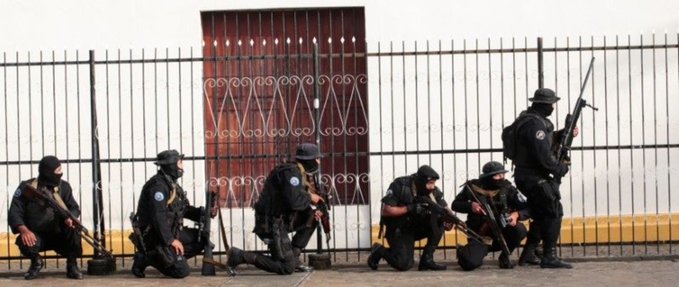31 March 2022
In response to the adoption today of a resolution by the United Nations Human Rights Council that establishes an independent accountability mechanism for human rights violations and crimes against humanity in Nicaragua, Erika Guevara-Rosas, Americas director at Amnesty International, said:
The establishment of an independent accountability mechanism for Nicaragua is a crucial step towards ensuring justice, truth and reparation for the horrific crimes and abuses that have been perpetrated in the country since 2018.
Erika Guevara-Rosas, Americas director at Amnesty International
“We commend the Human Rights Council for taking this vital action, and for sending a strong message to victims and survivors that they are not alone in their fight against impunity. Perpetrators must now be aware that accountability for human rights violations cannot be avoided. The Nicaraguan authorities must put an immediate end to the ongoing repression.”
Background
On 31 March 2022, the United Nations Human Rights Council adopted a resolution that establishes an independent accountability mechanism for Nicaragua with a mandate to investigate, collect evidence and determine responsibilities for human rights violations and crimes under international law perpetrated since 2018.
The adoption of this resolution follows an appeal by over 20 Nicaraguan, regional and international human rights organizations, including Amnesty International, issued last month, urging the Human Rights Council to step up its approach to the crisis.
Since 2018, Nicaragua has been immersed in a deep human rights crisis. More than 300 people have been killed, hundreds arbitrarily detained, and thousands have been forced to flee the country. The government has cancelled the legal permits of dozens of civil society organizations, and mounted attacks on numerous independent media outlets.
Last year, in the context of elections, the situation worsened further, as security forces detained dozens of perceived opponents, including independent journalists, potential election candidates, political activists and others. Some of these individuals were subjected to enforced disappearance – a crime under international law – for a period of weeks or months.
The government of Nicaragua has repeatedly refused to co-operate with regional or international human rights mechanisms in order to put an end to the country’s ongoing human rights crisis.
For more information or to arrange an interview, please contact Duncan Tucker: +52 55 4848 8266, duncan.tucker@amnesty.org






















